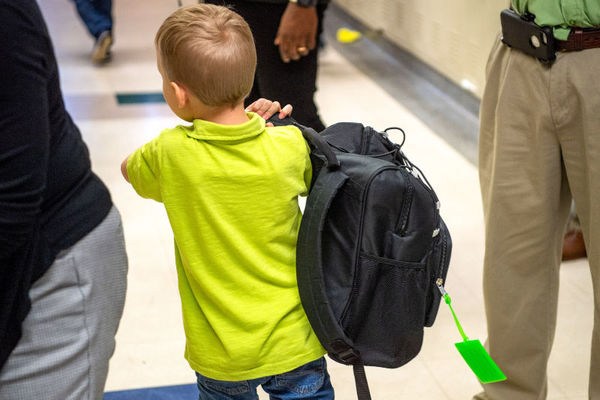Food for Families
Food for Families: The impact of a backpack program on lessening child hunger, improving school attendance, behavior and academic outcomes

'Food for Families' is a project designed to assess the feasibility and evaluate the impact of a program which provides food for children. Cultivate Food Rescue gathers donated food from area vendors (such as Venue ND and ND Athletics) that has been prepared, but never served. They then work with highly-trained volunteers to package it into meals.
Research Overview
The objectives of ‘Food for Families’ are to assess the feasibility of and evaluate the impact of a backpack program providing weekend food for children living in poverty. By providing an incentive for school attendance and eliminating hunger over the weekend, this program has the potential to improve school attendance and improve in-school behavior, therefore enhancing the children’s ability to learn in school. Insulated backpacks, with meals prepared from rescued foods, will be distributed through the children's schools. Parents will be asked to complete a brief socio-demographic survey at enrollment and will be interviewed once per semester to determine their perspective on how the food is being used and the impact of the program for their family. Throughout the course of the program, staff will track which students get the backpack, if and when the backpack is returned, and the condition of the bag. Students will be interviewed every other week to gather data pertaining to who ate the food, likes and dislikes, and whether they felt hunger over the weekend. Kindergarten and first-grade teachers will be asked to complete a classroom behavior assessment once per month throughout the course of the year. Attendance, academic testing, and behavioral data will be gathered from the schools at the end of the academic year. Students who come to school ready to learn have a greater chance of long-term improvement in academic outcomes.
Funded By
Indiana CTSI CHEP, Center for Social ConcernsAge Group
- Middle Childhood
Investigators
- Jen Burke Lefever, Ph.D.
- Marian Botchway, Ph.D.
Partners
Research Impact
Children who experience less hunger may sleep better and come to school ready to learn. A calmer environment in the school will help all children reach their educational potential. Evidence that the backpack program is feasible and may have a broader impact on children's behavior and learning will allow support for expansion and replication in other communities.